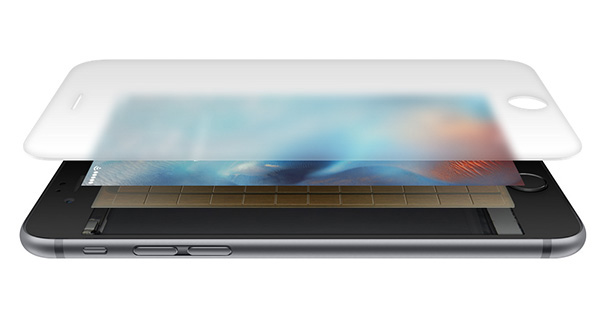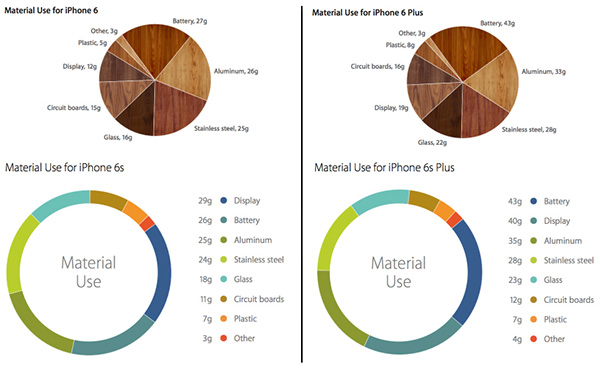One curious fact about Apple’s newly announced iPhone 6s and iPhone 6s Plus is that both smartphones weigh more than the devices they replace. 192g for 6s Plus vs 172g for 6 Plus and 143g for 6s vs 129g for 6. That’s almost unheard of, especially considering that the screen sizes haven’t changed. For a company as keen on reducing thickness and weight, almost to a fault, the idea of actually making the new generation of its smartphones heavier is an alien one, but not without its reasons.
On first blush, it initially appeared a safe bet that the reason for the extra weight was Apple’s move to a new type of alloy for the unibody chassis, with 7000 Series aircraft-grade aluminium now being used instead of the 6000 series alloy used with the previous generation.


The reason, we can only speculate, is to stop people from inexplicably bending their iPhones in half as so many seemed to manage with the iPhone 6 and iPhone 6 Plus. Stronger metal makes for less bending and, as the theory goes, makes the iPhone 6s and iPhone 6s Plus heavier than their predecessors. And that’s right. To a point.


According to Apple, the iPhone 6s Plus’ metal weighs a mere 2 grams more than the iPhone 6 Plus, and the metal used in the iPhone 6s is actually lighter than that in the iPhone 6. So where’s the weight coming from?
Reportedly, the extra weight comes from Apple’s new 3D Touch feature, which requires an additional layer of capacitive pressure sensors below the display to function. In fact, the new display technology weights over twice that of the outgoing smartphones that these new models replace. It’s this extra thickness, and added weight, that makes Apple’s new iPhones uncharacteristically thicker and heavier than their predecessors, but that’s okay.
iPhone 6s, iPhone 6s Plus display breakdown, showing extra layer of 3D Touch pressure sensors
The negligible addition in weight caused by the change in build material along with the heft of the 3D Touch makes for a cumulative gain of 11% in the bulk of both devices, which would be a problem if we were dealing with higher values of total weight. Neither the iPhone 6s nor iPhone 6s Plus are what we would call heavy, and they are certainly far from thick, so at the end of the day does it really matter all that much?
We know we’d rather have 3D Touch than a few grams of saved weight.
(Source: The Verge)
You may also like to check out:
- iPhone 6s Plus vs 6s vs iPhone 6 Plus vs 6 vs 5s [Specs Comparison]
- Apple iPhone 6s vs Samsung Galaxy S6 [Full Comparison]
You can follow us on Twitter, add us to your circle on Google+ or like our Facebook page to keep yourself updated on all the latest from Microsoft, Google, Apple and the web.
